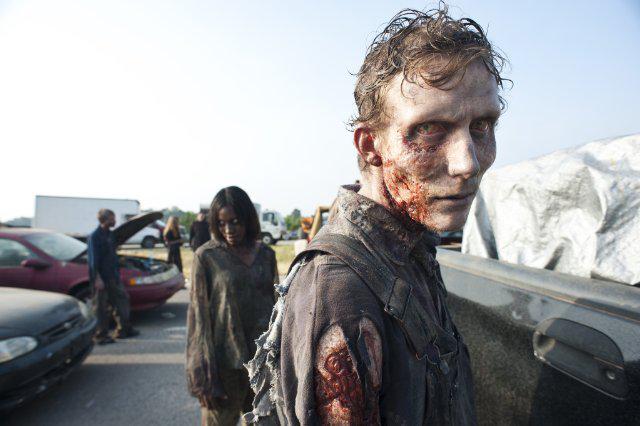Last night’s impressively-horrific-if-tepidly-plotted premiere of AMC’s The Walking Dead brought with it a perhaps more interesting television event: Talking Dead, the first episode of a half-hour talk-show series that will henceforth discuss each episode of Walking Dead that immediately precedes it. The show’s very existence raises some basic questions, such as, for instance: Why? And, Really? Also: Isn’t that what the Internet’s for? Still, Talking Dead’s mix of creator interviews, behind-the-scenes footage, plot speculation, and affable hosting provided a pleasant decompression from the gory tension of The Walking Dead. It’s weird that it exists, but even more weird that it’s OK.
Watching a talk show focused on a TV drama adapted from a comic book based on a decades-old movie premise derived from a misunderstood element of Haitian folk magic is, frankly, a pretty strange activity. And perhaps the best thing Talking Dead has going for it is the hosts’ implicit understanding of this. Chris Hardwick, of the popular Nerdist podcast, began the show by saying, “Welcome to the only talk show dedicated to The Walking Dead… I hope.”
That justifiably silly but nonetheless enthusiastic tone was sustained by guests Patton Oswalt and James Gunn (writer of the fairly excellent Dawn of the Dead reboot from a few years ago); the whole half-hour was essentially just a bunch of consummate fans spouting off on their favorite show. And that informal mood allowed for the evening’s best moment: When an instant online poll claimed that 99.9% of respondents would spend NO TIME attempting to save a little lost child that was featured in the episode, all three hosts immediately cackled at the callousness and/or possible technical glitch indicated by the number.
Does The Walking Dead really deserve this companion piece? One might think that AMC’s other hits, Mad Men and Breaking Bad, with their complicated plotting and sophisticated characterization, would be more suited to such extra attention. But something about the zombie-rific simplicity and visceral instant payoffs of The Walking Dead lends itself to the fervent, nerded-out enthusiasm of this format. It’s more “OMG did you see that part with the screwdriver in the zombie’s eye?!” than “What did you make of the political subtext to Peggy and Joan’s tense conversation about gender dynamics in the office?” For what it is, Talking Dead does a surprisingly good and natural job of extending the excitement of watching a really good hour of horror another 22 minutes.
So welcome to the future, I guess—where you don’t just appreciate TV, TV appreciates itself for you.
